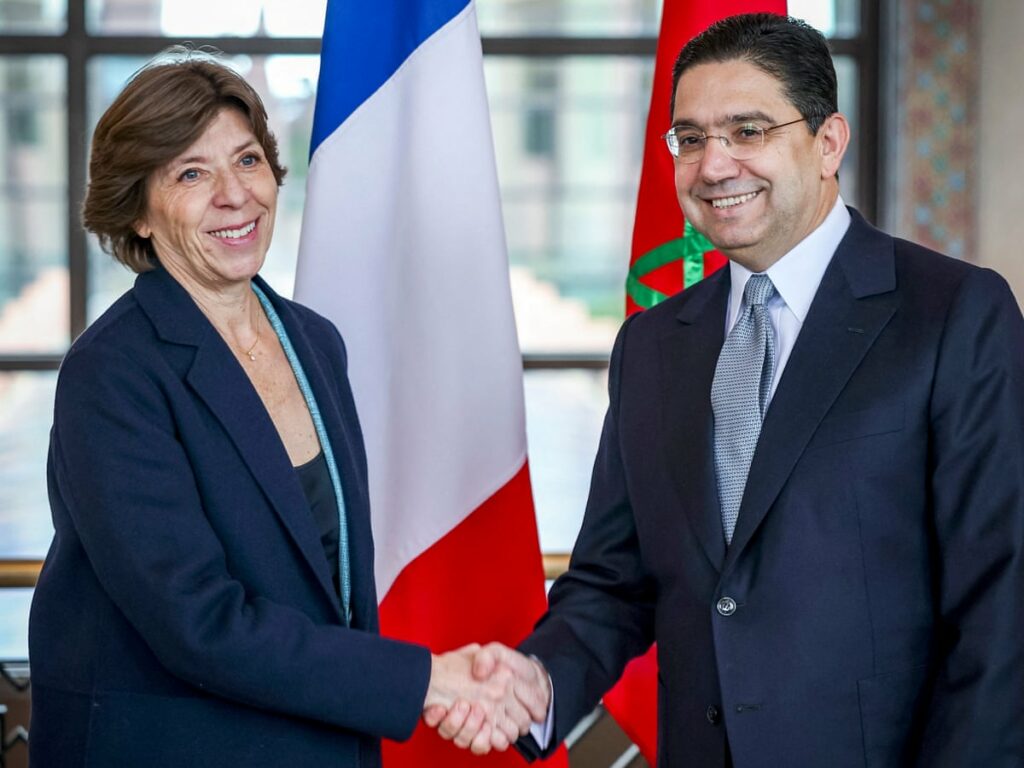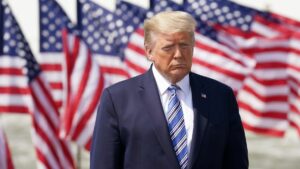
Many Moroccan observers and analysts were recently taken aback by the European Parliament’s adoption of a resolution on human rights in Morocco last week.
If anything, however, this resolution has had the merit – perhaps in spite of itself – of finally awakening many Moroccans to European duplicity.
As they struggle to make sense of —and eventually respond to— the resolution, many people have criticized Europe’s double standards, cynicism, and hostility toward a nation whose only misdeed has been to make the choice of an independent foreign policy and demand that its European allies treat it with respect and loyalty.
In other words, many Moroccan observers of Morocco-EU relations have struggled to understand how the European Parliament – which had before dared to tread on such shaky ground – could single out Morocco while ignoring massive human rights violations in Algeria, Tunisia, and Libya.
Not to mention the shameless human rights violations in France, where an imam born in the country was recently deported to Morocco and separated from his children and grandchildren. And what of the ongoing abuses of journalists and human rights defenders in many EU member states?
Of the many violations and abuses this very parliament has kept its mouth and eyes shut about, some will recall the case of Denmark, which in 2016 passed a law allowing its security services to strip Syrian refugees of their jewelry to finance the cost of their stay in what they hoped would be a host country, a safe haven.
Settling Scores To Discipline Morocco
The resolution’s tone and catch-all nature reveal that the ultimate goal of those who promoted it is not to advance human rights in Morocco but rather to make a political statement to a country that has been increasingly willing to speak out — including against European nations that have long been engulfed in a superiority complex — when it comes to protecting its strategic interests.
And, when we analyze the political context of this resolution, it is hard not to come to the conclusion that France’s frustration with Morocco’s increasing assertiveness played a central role in the adoption of such a hostile text.
Three things are unconscionable, sacrilegious for France’s political elite when it comes to the current state of Paris-Rabat relations. That Morocco has diplomatically outclassed and challenged France in francophone Africa; that the North African country is now an undisputed leader in Africa whereas French diplomacy is decried across the continent; and that Morocco is currently moving away from Paris by actively expanding and diversifying its network of strategic partners.
France is, therefore, the only EU powerhouse that still has unresolved issues with Rabat. Germany and Spain, two other powerhouses in the European bloc, have mended fences with Morocco and recently strengthened their diplomatic ties with the North African country. As such, Madrid and Berlin have no interest in voting for a resolution that might undo all the progress they have made since they each clarified their stances on the western Sahara dispute.
France, meanwhile, is still mired in its appeasement policy toward Algeria, something that is forcing it into remaining vague and ambiguous on the Western Sahara dispute.
As I have stated in a number of recently published analyses, France takes a dim view of Morocco’s desire to develop an independent foreign policy and carve out a place for itself on the regional and international stages.
As the telling title of Antoine Glaser‘s book on the multiple failures of French diplomacy in Africa suggests, France’s attitude toward Morocco is an example of its arrogance and its belief that Morocco, its former protectorate, could not possibly seek to play a major role on the African geopolitical scene, or even expect to be treated like an equal partner.
In the neo-colonial imagination of the French ruling class, it is inconceivable that Paris would treat Rabat as an equal. This is why France’s political, economic, and media elites continue to either heap subtle insults on Morocco or present the country in a bad light. The Pegasus affair, the recent controversy over visa restrictions, or even this latest use of the European Parliament as leverage to blackmail Morocco are just some of the recent French maneuvers to pressure Morocco into making political concessions.
As Morocco is now daring enough to step up and negotiate new terms of its relations with those who claim to be its allies or friends, Paris’s aim is to reprimand Rabat by using its clout in the European Parliament to exert pressure on the north African country and harm its reputation. This means Morocco’s continuous defiance of France will only invite, inspire more manipulation and disinformation campaigns in the French media.
We Moroccans ought to be aware of this and respond accordingly. Everyone in Morocco, including common citizens, politicians, businesspeople, journalists, and intellectuals, should be aware of the threat that France poses to our nation.
For one thing, it is important to recognize that Morocco is approaching a watershed moment in its history that could define the role that the kingdom will play on the regional and international stages in the coming years and decades.
Whether the country succeeds in meeting this monumental challenge will depend on the mobilization of all national stakeholders – especially politicians, businesspeople, journalists, and intellectuals – and their awareness of the dangers that threaten Morocco’s supreme interests.
One of these dangers lies in the deceitfulness of certain countries, whose nostalgia for the time in which Morocco was forced to obey their diktats causes them to still regard the North African country as their backyard and a satellite state.
A long history of French deceit in Morocco
Every Moroccan should be aware that France is largely to blame for the geopolitical and economic headwinds our country has endured for more than a century. During the last quarter of the 19th century, France went to great lengths to perpetuate the system of foreign protection granted to Moroccans who cooperated with European traders.
With Italy’s support, France succeeded in aborting the Madrid Conference in 1880, whose initial goal was to reform the system of protection that had been widely abused by French traders and consuls. Historians agree that the expansion of this protection system was a major cause of the Moroccan state’s gradual and unavoidable collapse.
It was this same France — admired and adored by many Moroccans who seem to know very little about the history of their country — that granted protection to the Sharif of Ouezzane in 1884 to create a counterweight to Sultan Hassan I’s religious legitimacy.
In the midst of a diplomatic crisis between Morocco and Spain in 1893, France forced Morocco to accept the terms set forth by Spain to avoid further war following military clashes on the border between Nador and Melilla.
With the support of Great Britain, Sultan Hassan I stood firm and refused to be intimidated by Spain, which was under pressure from other European powers to reach a diplomatic solution.
After receiving a diplomatic note from the French government warning him against defying Spain’s demands, however, Hassan I was forced to submit to Spain’s diktats.
The letter stated unequivocally that France would support Spain if war broke out between the two countries. As a result, Morocco was forced to pay Spain an indemnity of 20 million pesetas, which was added to the $400 million it had paid in compensation for the Tetuan war (October 1859-March 1860).
To honor its commitment, Morocco was forced to go into debt and raise taxes on a population that was already struggling to make ends meet since the end of the Tetuan war.
Similarly, after imposing a protectorate over Morocco under conditions that have never been clarified, France attempted to violate the provisions of the protectorate treaty by transforming the country into a colony subject to direct administration of the metropolis, similar to French Algeria.
When Moroccan nationalists and the late King Mohammed V rallied to demand strict adherence to the 1912 treaty and independence from France in 1947, the French state and media wasted no time in attacking the King’s religious and political status, as well as suppressing Moroccan resistance.
Moroccans should reclaim their history, own it, and cleanse it of all myths and preconceived notions that still prevent them from fully comprehending the intricacies of certain historical facts that have left indelible marks on the country’s present and future.
On the Western Sahara dispute, for example, Moroccans must speak up and demand that France apologize for the geopolitical damage it has inflicted on their country. France should also apologize for the killings of Moroccan resistance fighters throughout the protectorate years.
France bears full responsibility for igniting the Sahara dispute, and it is up to the French government to right this historical wrong done to Morocco. France engineered the April 1904 treaty with the United Kingdom and the October 1904 treaty with Spain.
Without Théophile Delcassé’s concessions, France’s foreign minister at the time (1898-1905), Spain would never have been able to claim sovereignty over the Western Sahara, which was then recognized worldwide as Moroccan. Delcassé was the one who used Morocco as a bargaining chip to ally himself with Britain and isolate Germany, a country that he abhorred.
Paris must shoulder its responsibility in the Sahara dispute
Regarding the Western Sahara issue – which Morocco’s opponents are quick to use to smear our country’s image – Rabat should no longer let Paris off the hook. That is, Morocco should let it be known to the French government that it expects more clarity from France on the Sahara dossier, not Paris’s habit of taking an ambiguous political stance to avoid any diplomatic falling out with Algeria.
Algeria, whose regime is intent on challenging Morocco’s territorial integrity and frustrating Moroccan regional ambitions, is the only other, true party in the Sahara dispute. As is well known, the Separatist Polisario Front exists only because of Algeria’s financial and logistical backing.
If it really wants to work in good faith to bring the Sahara dispute to an end, France should first acknowledge its historical role in creating this territorial conflict. Hiding behind the UN-led process does not help close this chapter or protect French interests in Morocco.
Hence, Morocco should close the door to any visit by Emmanuel Morocco until he clarifies his country’s position on the Sahara issue. Macron should not be allowed to visit Morocco unless Paris recognizes Morocco’s full sovereignty over the territory it once handed over to Spain.
This could perhaps help the French political, economic, and media establishments realize that they would do better to get used to the idea that today’s Morocco is not the Morocco of two or three decades ago, and that Rabat is determined to play the role it deserves on the regional and global stage.
Paris should learn to treat Morocco as an equal. Above all, the French elite must recognize that they are dealing with a country that is growing more assertive and whose younger generations seek to break free from any vertical relationship with France or any cultural or economic dependence.





